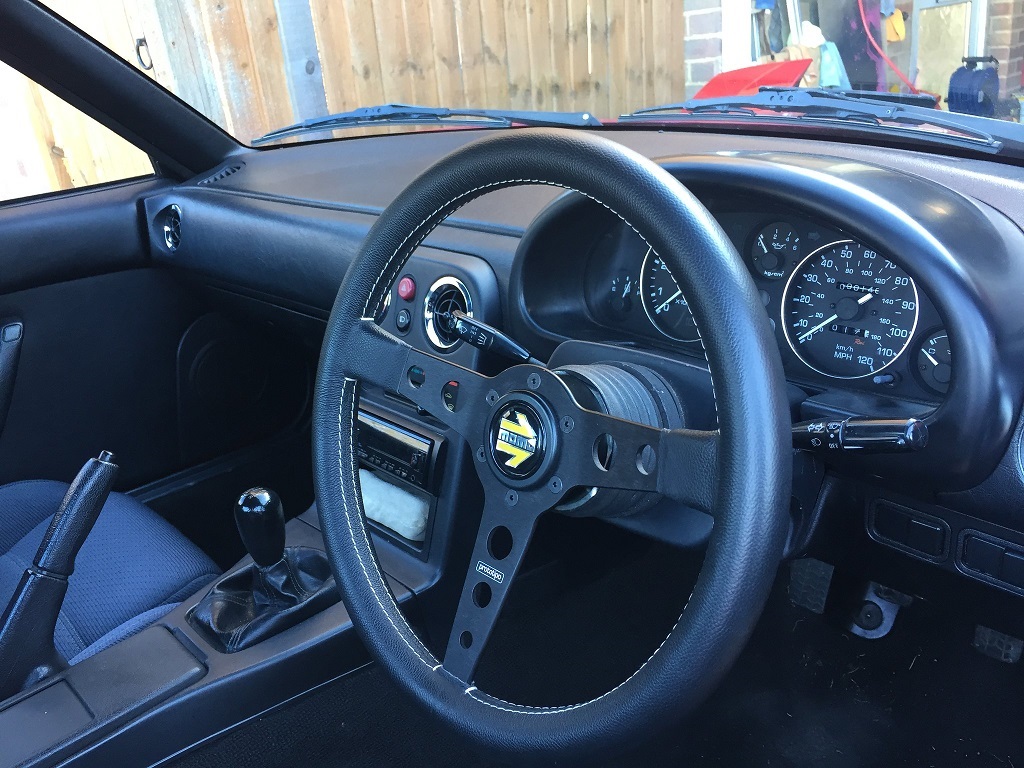
The Creaky Conundrum: Unveiling the Mystery Behind a Noisy Steering Wheel
The steering wheel is the primary point of control for your car. An unexpected creaking sound while turning can be disconcerting and raise concerns about potential problems. This guide delves into the reasons behind a creaking steering wheel and equips you with the knowledge to address the issue.
Understanding the Symphony of Your Steering System:
A car’s steering system is a complex network of components working together to facilitate smooth and precise control over the direction of the vehicle. Here are some key parts involved:
- Steering Wheel: The interface you grip to steer the car.
- Steering Column: The shaft connecting the steering wheel to the steering gear.
- Universal Joints: Flexible joints within the steering column that allow for slight adjustments in the steering wheel’s position.
- Steering Gear: The component that converts the rotational movement of the steering wheel into the horizontal movement of the wheels. This can be a rack and pinion system or a recirculating ball system.
- Tie Rods: Metal rods that connect the steering gear to the wheels, translating the steering input into wheel movement.
The Culprits Behind the Creak: Common Causes of Steering Wheel Noise
Several factors can contribute to a creaking sound when turning the steering wheel:
- Lack of Lubrication: Over time, the lubricant within the steering system components can dry out, causing friction and resulting in creaking noises when the steering wheel is turned. This is a common cause, especially in older vehicles.
- Worn Universal Joints: The universal joints in the steering column can wear out with age and use. This wear can lead to a creaking sound as the joints struggle to move freely.
- Faulty Tie Rod Ends: The tie rod ends connect the tie rods to the wheels. Worn or damaged tie rod ends can cause a clunking or creaking sound when turning the car.
- Loose Steering Wheel Bolt: In rare instances, a loose steering wheel bolt can cause a creaking sound as the wheel moves slightly.
Diagnosing the Creak: Clues to Identify the Problem
While a creaking steering wheel indicates a potential issue, additional symptoms can help pinpoint the specific cause:
- Timing of the Creak: Does the creaking occur only when turning the wheel in one direction (left or right)? This might point towards a problem on the corresponding side of the steering system.
- Accompanying Sounds: Is the creaking accompanied by a clunking sound? A clunking sound could indicate worn tie rod ends.
- Steering Wheel Feel: Does the steering wheel feel loose or vibrate while turning? This could signify a more serious issue with the steering components.
Addressing the Creak: Solutions for a Quieter Ride
If your steering wheel is creaking, here are some potential solutions:
- Lubrication: In many cases, simple lubrication of the steering system components can resolve the issue. This might involve applying a specialized grease to specific points within the system. It’s recommended to consult a mechanic for proper lubrication procedures.
- Replacing Worn Parts: If the creaking is caused by worn universal joints, tie rod ends, or other components, replacing the faulty parts will be necessary. This is a job best left to a qualified mechanic.
- Tightening Loose Bolts: In rare cases, a loose steering wheel bolt might be the culprit. A mechanic can tighten the bolt to eliminate the creaking sound.
Safety First: When to Seek Professional Help
While some creaking noises might be minor and addressed with lubrication, it’s crucial to prioritize safety. Seek professional help from a qualified mechanic if you experience any of the following:
- Loss of Steering Control: If the steering wheel feels loose or unresponsive, don’t hesitate to take your car to a mechanic immediately. This is a serious safety concern.
- Abnormal Sounds: A clunking or grinding sound accompanying the creak is a sign of potential damage and requires professional attention.
- Worsening Creaking: If the creaking sound progressively worsens, it’s best to have a mechanic diagnose and address the issue before it becomes a bigger problem.
Preventive Measures: Maintaining a Silent Symphony
Regular car maintenance is key to preventing a creaky steering wheel. Here are some tips:
- Scheduled Maintenance: Adhere to your car’s recommended maintenance schedule, which might include lubrication of steering system components at specific intervals.
- Listen for Warning Signs: Be attentive to any unusual sounds or changes in the steering wheel feel. Addressing minor issues early on can prevent more significant problems later.
- Qualified Mechanics: When servicing your car, choose a qualified mechanic who can properly diagnose and repair any potential steering system problems.
Related: DIY Car Dent Repair: Easy Methods To Fix Small Dents At Home
The Final Gear: Keeping Your Ride Smooth and Sound
A creaking steering wheel can be a nuisance and a potential safety concern. By understanding the common causes, identifying the source of the sound, and taking appropriate action, you can ensure a smooth and quiet driving experience. Remember, prioritizing safety is paramount. If you have any doubts or experience worrisome symptoms, don’t hesitate to seek professional help from a qualified mechanic.
Additional Resources:
-
- For a more detailed understanding of your car’s specific steering system components and maintenance schedule, consult your car’s owner’s manual.
- The National Institute for Automotive Service Excellence (ASE) website (https://www.ase.com/) can help you locate a qualified mechanic in your area.




